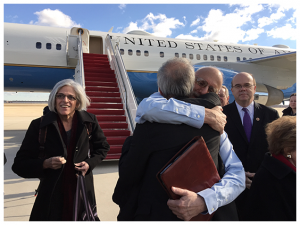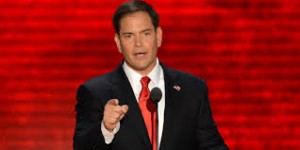Barack Obama and Raul Castro have announced that they will begin to normalize relations between the United States and Cuba after more than 50 years and over the last week I have been reading commentary and criticism of the breakthrough. It occurs to me that most of it misses some of what I feel are the key points behind the agreement.

Much of the coverage logically centers around the release of Alan Gross, an american who was working on a U.S. government sponsored project to bring modern computers and cell phones to synagogues in Cuba and was sentenced to 15 years in jail. According to the New York Times, Pope Francis intervened on his behalf and supported the current agreement which also involved trading three Cuban intelligence agents for an american spy who has been in a Cuban jail for 15 years.
Keeping Promises
During the 2008 elections, Obama promised Cuban Americans in Miami that he would push for bringing freedom to Cuba and part of the announcement has to do with President Obama trying his best, in his last two years in office, to fulfill his promises as best he can within the limits of Presidential power in the context of the United States’ political system. This policy is visible in recent steps the administration has made on climate change, immigration reform and other issues.

In the case of Cuba, Republican politicians such as Marco Rubio, who represents Florida in the U.S. Senate and is Cuban American, feel the President has betrayed the people who have fought the Castro brothers for 50 years. The President’s view is that engagement with Cuba and increased trade and communications will accelerate the eventual transition to a freer society in Cuba.
Scenario Planning

A second major issue in the move is, according to Obama’s speech which is attached below, that the Castro regime is close to collapse and that the chaos associated with such a collapse will not benefit the Cuban people or the United States. The question is what will happen in Cuba after the eventual death of Fidel Castro who is 88 years old and has been in failing health for the last few years? The current President, Fidel’s brother Raul, will turn 83 in June and while he appears to be well, he has announced that he will step down in favor of Miguel Diaz-Canel, Cuba’s Vice President, in 2018.
The issue is that as the regime slowly collapses as a result of the worsening economic situation, there may be serious conflict between Mr. Diaz-Canel, a politician, Cuba’s army, and other centers of power on the island for control. Another wild card is the role of China, which is Cuba’s second largest trading partner after Venezuela.
My guess is that the President’s intelligence people have determined that a positive transitionary period to a freer, more western leaning, cuban administration is more likely if the two countries have more, rather than less, contact in the next couple of years and that the status quo could lead to chaos, misery, and even bloodshed when the inevitable happens and Fidel passes away. When that happens Raul and his government will attempt to hold onto power against an impoverished population which increasingly has nothing to lose!
Elections 2016
The last issue which the announcement will certainly affect but may not have been on Obama’s mind is the way the normalization of relations, will play out in the presidential elections in the United States in 2016. Both Senator Rubio and former Florida Governor Jeb Bush have come out strongly against the policy while former Secretary State Hilary Clinton supports the move.
Obama carried Florida by only 0.9% of the vote in 2008 and the question is which way will Cuban Americans see the move in two years time. The latest poll shows Cuban Americans split on the policy but a lot can happen in two years!

